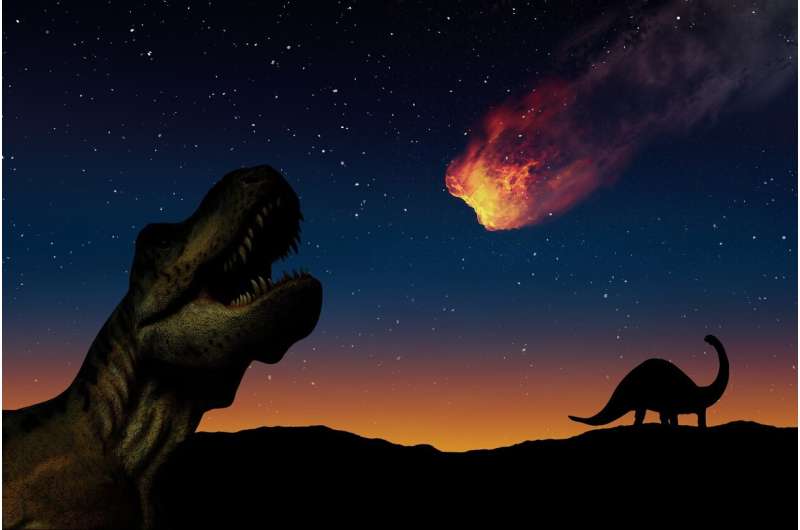When did dinosaurs go extinct? The theories on how it happened and what survived

In the film "Jurassic Park," billionaire John Hammond, played by Richard Attenborough, brings paleontologists Alan Grant, played by Sam Neill, and Ellie Sattler, played by Laura Dern, as well as mathematician Ian Malcolm, played by Jeff Goldblum, to help him bring dinosaurs back to life for his dinosaur theme park. Hammond's fascination and desire to revive dinosaurs backfires when many of them break free and start to terrorize the park-goers.
Maybe the dinosaurs were meant to stay in their time. If that is so, when did the dinosaurs go extinct?
When did dinosaurs go extinct?
According to National Geographic, dinosaurs went extinct about 66 million years ago. Paleontologists have yet to discover rocks with a trace of a dinosaur younger than 66 million years, during the Cretaceous period.
According to the United States Geological survey, dinosaurs roamed the Earth for 165 million years.
How did dinosaurs go extinct?
According to National Geographic, there are two main theories as to how the dinosaurs went extinct: interplanetary violence or problems on Earth.
In 1980, two scientists proposed the idea of a possible mountain-sized meteor slamming into earth, filling the Earth with dust, debris and gas that drastically altered the climate. According to National Geographic, scientists developed this idea due to high amounts of iridium in the K-Pg layer of the geological boundary zone where many fossils were found.
Iridium is considered relatively rare on Earth naturally and is more abundant in meteorites. The theory further developed after the discovery of a large impact crater near Mexico's Yucatán Peninsula. In 2016, scientists drilled into the crater and were able to conclude the impact that caused the crater was powerful enough to send deadly vaporized rock and gas into the atmosphere.
The other theory is massive amounts of lava flow from India, known as the Deccan Traps, occurred around the same 66 million years ago timeline. According to National Geographic, the eruption resulted in volcanic rock covering 200,000 square miles in layers that are up to 6,000 feet thick. It's believed this eruption could have been powerful enough to fill the air with dangerous amounts of carbon dioxide and other gasses, drastically altering the Earth's climate.
Did any dinosaurs survive?
According to Smithsonian Magazine, not all dinosaurs died 66 million years ago. Not all dinosaurs that existed 165 million years ago looked like the giant reptilian creatures one may associate with the term dinosaur. In fact, birds are dinosaurs. Birds evolved from small and feathery raptor-like creatures forming a branch on the dinosaur family tree.
(c)2022 USA Today
Distributed by Tribune Content Agency, LLC.





















